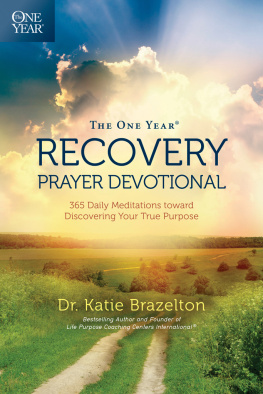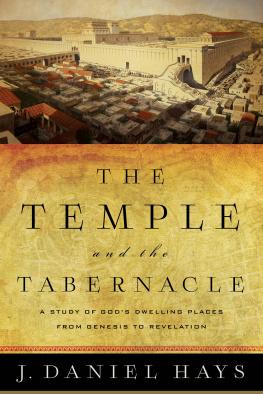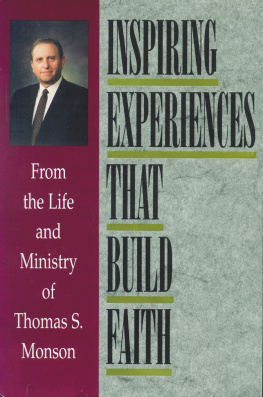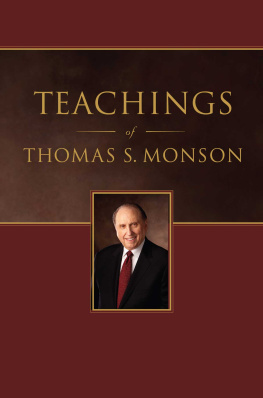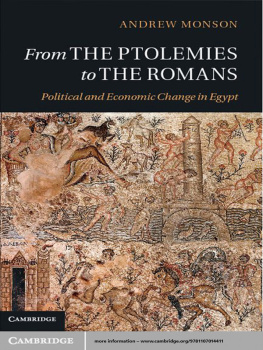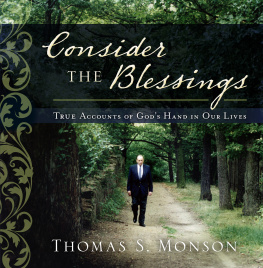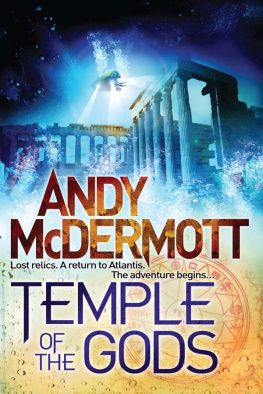Dwight Monson - Understanding the Lds Temple: Experiencing Gods Love
Here you can read online Dwight Monson - Understanding the Lds Temple: Experiencing Gods Love full text of the book (entire story) in english for free. Download pdf and epub, get meaning, cover and reviews about this ebook. year: 2014, publisher: CreateSpace, genre: Religion. Description of the work, (preface) as well as reviews are available. Best literature library LitArk.com created for fans of good reading and offers a wide selection of genres:
Romance novel
Science fiction
Adventure
Detective
Science
History
Home and family
Prose
Art
Politics
Computer
Non-fiction
Religion
Business
Children
Humor
Choose a favorite category and find really read worthwhile books. Enjoy immersion in the world of imagination, feel the emotions of the characters or learn something new for yourself, make an fascinating discovery.

- Book:Understanding the Lds Temple: Experiencing Gods Love
- Author:
- Publisher:CreateSpace
- Genre:
- Year:2014
- Rating:4 / 5
- Favourites:Add to favourites
- Your mark:
- 80
- 1
- 2
- 3
- 4
- 5
Understanding the Lds Temple: Experiencing Gods Love: summary, description and annotation
We offer to read an annotation, description, summary or preface (depends on what the author of the book "Understanding the Lds Temple: Experiencing Gods Love" wrote himself). If you haven't found the necessary information about the book — write in the comments, we will try to find it.
Understanding the Lds Temple: Experiencing Gods Love — read online for free the complete book (whole text) full work
Below is the text of the book, divided by pages. System saving the place of the last page read, allows you to conveniently read the book "Understanding the Lds Temple: Experiencing Gods Love" online for free, without having to search again every time where you left off. Put a bookmark, and you can go to the page where you finished reading at any time.
Font size:
Interval:
Bookmark:
UNDERSTANDING THE LDS TEMPLE
Experiencing Gods Love
Dwight E. Monson
Copyright 2014 by M & M Global, LLC
All rights reserved. No portion of this book may be reproduced, stored in a retrieval system, or transmitted in any form or by any means electronic, mechanical, photocopy, recording scanning or other except for brief quotations in critical reviews or articles, without the prior written permission of the author or M & M Global.
Dedicated to Marilynn Allred Monson
The love and inspiration of my life and my eternal companion
TABLE OF CONTENTS
Chapter 1: Introduction . 1
Chapter 2: What Is A Temple? . 7
Chapter 3: Initiatory Preparing To Enter
The House Of The Lord .. 15
Chapter 4: What Is The Endowment? .. 30
Chapter 5: The Creation ... 48
Chapter 6: The Garden . 59
Chapter 7: The Telestial World 85
Chapter 8: The Terrestrial World . 106
Chapter 9: Celestial Glory 120
Chapter 10: Celestial Marriage and Sealings 131
Chapter 11: Calling and Election Made Sure 142
Chapter 12: Loving the Temple 148
Bibliography . 154
Index . 161
About the Author . 170
It is both humbling and awe-inspiring to write about the temple of our God. The more one ponders and searches for understanding, striving to plumb the depths of what is revealed there, the more one senses he is merely scratching the surface of the most profound eternal truths governing existence throughout the universe. The Prophet Joseph Smith taught;
The things of God are of deep import; and time, and experience, and careful and ponderous and solemn thoughts can only find them out. Thy mind, O man! If thou wilt lead a soul unto salvation, must stretch as high as the utmost heavens, and search into and contemplate the darkest abyss and the broad expanse of eternity thou must commune with God. (HC 3:298-296)
Such is our mortal quest: to comprehend eternal truth with a finite mind. Revelation from God is our only hope. As in all else, man is wholly dependent upon the grace of God.
In His condescension to man, the Lord has commanded the Saints to build temples, even a house of prayer, a house of fasting, a house of faith, a house of learning, a house of glory, a house of order, a house of God. (D&C 88:119) As with all His commandments, this one is accompanied by promises of great blessings: to be endowed with power from on high. (D&C 95:8; see also D&C 38:32, 38)
The power of God flows from truth: knowledge of things as they are, and as they were, and as they are to come. (D&C 93:24) The Prophet taught, In knowledge there is power. God has more power than all other beings, because He has greater knowledge; and hence He knows how to subject all other beings to Him. He has power over all. (HC 5:340)
Likewise, mans ability to attain salvation is directly linked to his acquiring knowledge of truth. It is impossible for a man to be saved in ignorance. (D&C 131:6) A man is saved no faster than he gets knowledge. (HC 4:588) Knowledge is necessary to life and godliness. (TPJS, p. 265)
It is in the house of the Lord that we receive instruction and revelation of things as they are, and as they were, and as they are to come. (D&C 93:24) It is there that we are endowed with power from on high. (D&C 38:32) As such, the temple should be the center of our worship in this last dispensation, as it has been in prior dispensations.
We live in a marvelous time, when temples dot the earth in fulfillment of prophecy. Yet, by all accounts, temple attendance lags among the Saints. There are many contributing factors to this omission, but at its core must be a failure of the Saints to grasp the message and power of the temple that would otherwise give it priority over competing forms of activity and diversion.
Even among faithful temple attenders, many perform temple service out of a sense of duty or obedience, while failing to savor the life-giving truths so bountifully offered. Perhaps you know some of these noble souls like my dear friend, call her Sarah. She attends the temple regularly. She served for years as a temple ordinance worker. She has submitted thousands of names for proxy. She prays daily, both morning and night. She reads her scriptures each day and attends her Sabbath meetings. She renders service to her family, friends, neighbors and community. Surely, she should qualify to drink deeply from the living waters that flow from the temple.
However in private conversations, Sarah admits that she has little comprehension of temple ordinances and instruction. She knows there are truths of great importance taught in each aspect of temple worship, but she is at a loss to know how to begin accessing a deeper understanding of the temple and its revelations.
This book is for my dear friend, Sarah, and for all who believe President Spencer W. Kimball when he observed, If you understood the ordinances of the House of the Lord, you would crawl on your hands and feet for thousands of miles in order to receive them. (Ehat, Andrew, Who Shall Ascend Into the Hill of Lord, Temples of the Ancient World, Parry, p. 59)
In my own personal quest for greater knowledge of eternal truth, I have greatly benefited from a powerful framework and selective insights derived from study and discussions with others to point the way and inspire deeper inquiry. Two experiences that bracketed my full-time service as a missionary have been of particular assistance to me.
The first occurred in 1973 at the end of my mission in France and Switzerland. I received permission to travel to Bern, Switzerland, and attend an endowment session in the Swiss temple. The temple president at that time was Emmo Lischin. Just before the endowment session, President Lischin delivered a very special lecture in the chapel of the temple on the meaning of signs and tokens of the priesthood and of specific activities that transpire at the veil of the Lord. President Lischin indicated that President Spencer W. Kimball, the living prophet at that time, had directed him to share these instructions with the Saints.
For obvious reasons, I will not be explicit in discussing all that President Lischin imparted to us, but suffice it to say, his instruction provided a powerful framework and selective insights that, to this day, have inspired my inquiry into truth taught in the temple. As I approached temple worship thereafter, his teachings gave me assurance that every detail of what occurs in the temple holds profound and specific meaning while providing a jumping off point for deeper inquiry. I will be eternally grateful for President Lischins lecture.
The second experience occurred in the first few days of my full-time mission. As part of our preparation to serve the Lord, missionaries were ushered to the fourth floor of the Salt Lake temple to meet with a member of the First Presidency in the solemn assembly room. President Joseph Fielding Smith was the living prophet at that time, but due to health problems, President Harold B. Lee, first counselor in the First Presidency, addressed us. After brief introductory remarks, President Lee invited the missionaries to ask him questions. While I remember but few of the specific questions asked and answers given, it was impossible to miss the fact that President Lee answered every inquiry first by referencing the scriptures before providing additional commentary. I believe he wanted to teach by personal example that the answers to all righteous inquiries can be found in the scriptures.
This book will attempt to draw from the scriptures insights pertaining to the temple. Other sources will be cited, as well, but the scriptures will always be primary as the most definitive and profound source of enlightenment in accessing eternal truth, save only direct, personal revelation.
Font size:
Interval:
Bookmark:
Similar books «Understanding the Lds Temple: Experiencing Gods Love»
Look at similar books to Understanding the Lds Temple: Experiencing Gods Love. We have selected literature similar in name and meaning in the hope of providing readers with more options to find new, interesting, not yet read works.
Discussion, reviews of the book Understanding the Lds Temple: Experiencing Gods Love and just readers' own opinions. Leave your comments, write what you think about the work, its meaning or the main characters. Specify what exactly you liked and what you didn't like, and why you think so.


